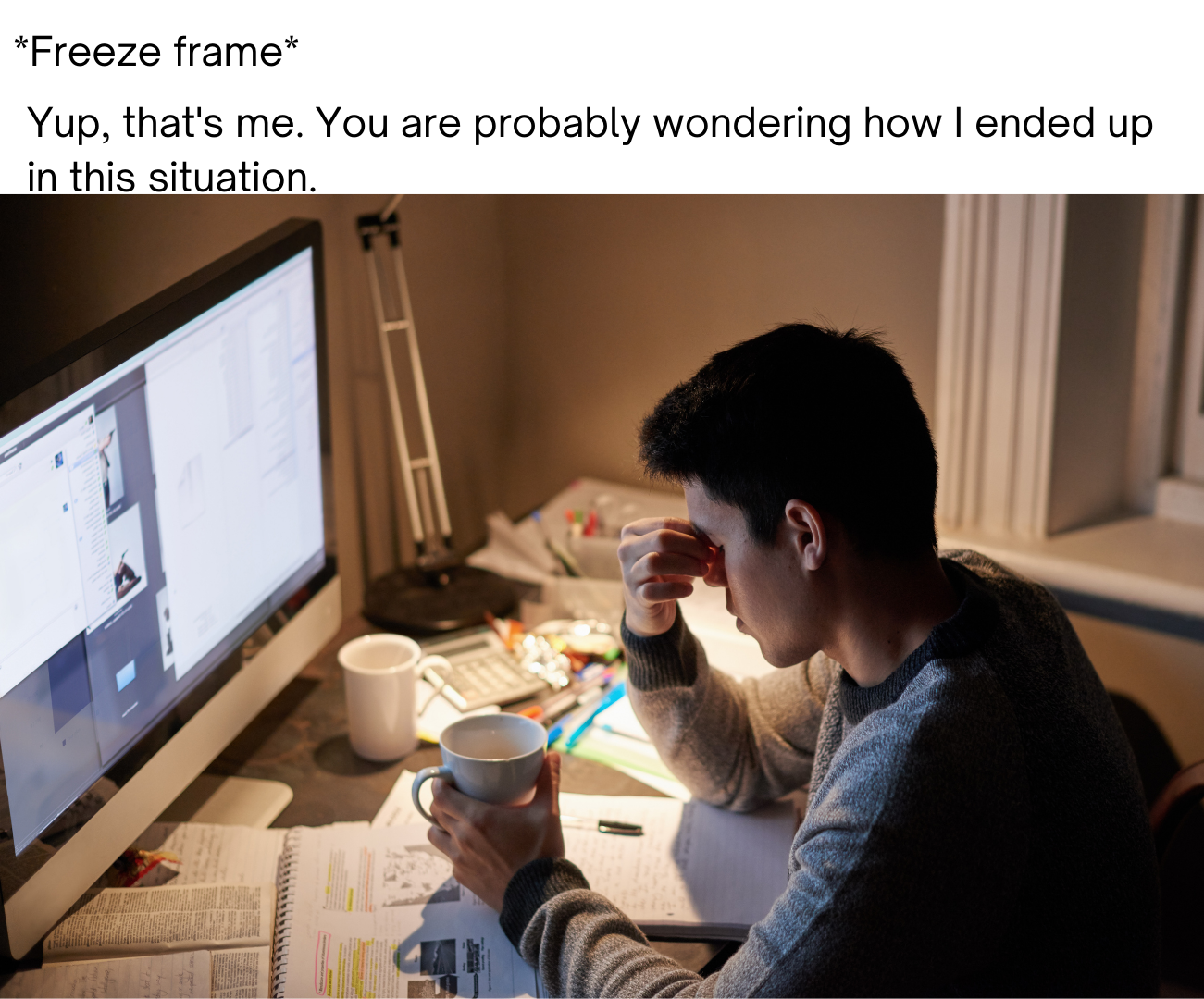Procrastinator’s Paradise: How to Study for IB Exams at the Last Minute
Written by Anzhelika Tauber, MSc

Table of Contents
- Introduction: What is CAS?
- Importance of CAS in Education
- Ideas for CAS Projects
- Environmental Sustainability
- Social Engagement
- Arts and Culture
- Sports and Physical Fitness
- Benefits of CAS for Students
- Conclusion
- FAQs
What is Procrastination?
Procrastination is the act of delaying or postponing tasks that need to be done. It’s a common habit among students, and it can have a significant impact on their academic performance. While some may argue that procrastination can lead to better results when studying for exams, the truth is that it can be detrimental to your grades. When you wait until the last minute to study, you’re not giving yourself enough time to fully understand the material. You may be able to cram some information into your brain, but you won’t retain it for long. Additionally, when you’re under pressure to complete a task quickly, you’re more likely to make mistakes. So, while it may seem like a good idea to put off studying until the night before an exam, it’s not a strategy that will lead to success in the long run.Â
But if you are in this situation, lets see what you can do to make the best out of it.
Tips for Effective Last Minute Studying for IB Exams
If you find yourself in this situation, do not despair. While it’s not ideal, it’s not impossible to ace an exam with eleventh-hour studying. The key is to use your time effectively.
- First, prioritise the material you need to study based on what’s going to be on the exam. For that go over the syllabus. The IB will not ask any questions that were not covered by your teachers. The wording might be different but the gist will remain. Going over the syllabus will show you what topics you already know and are confident with and what still needs revision and practice.
- Second, practice as many past papers as you can. Going over the past papers will show you exactly how the exam is structured, how the questions are formulated and will generally let you know what to expect. Moreover, if you look on the internet you will find practice exams for basically every IB subject and some resources even offer sample answers that you can memorise. Do not plagiarise those sample answers, but remember the key points for every question and formulate your own answer at the exam.The best revision resource we recommend is revision village. They have structured their material in a way that makes it very easy to revise, they offer sample answers to every question and they also have explanatory videos for more in-depth understanding. Doing those practice exams is extremely valuable. It also gives you an idea about the time management and honestly, half of your success comes from the proper time management at an IB exam.
- Third, use other active studying techniques like creating flashcards, summarizing information in your own words, or explaining it to someone else to help you retain the information. We are big fans of flashcards! Flashcards typically contain small amounts of information, making it easy to digest and retain. By focusing on one piece of information at a time, flashcards help to prevent overwhelm and promote better understanding. And creating flashcards is a way of learning in itself. But there are some resources that offer ready-made flashcards, such as Brainscape or SmarterPrep.
- Importantly, focus on the big-picture concepts and main ideas rather than trying to memorise every detail. You can know all the content but not necessarily review all of it. Instead, you should focus on your areas of weakness. In a scenario where there are four chapters to study and limited time, it is better to spend more time on the chapters you are less confident in than to divide your time equally between all chapters.Â
- Take breaks to avoid burnout and give your brain time to process the information.
- Finally, get a good night’s sleep before the exam. While it may be tempting to stay up all night studying, lack of sleep can impair your cognitive function and actually hurt your performance on the exam. With a fresh mind, you can often deduce an answer, with a tired mind, you will be lucky to deduce what subject you are taking the exam in 😉
With these tips, you can make the most of your eleventh-hour studying and improve your chances of acing that exam.Â
Strategies for Acing IB Exams when Studying at the Last Minute
For all the procrastinators out there, there is still hope to ace your exams even if you have left all your studying to the last minute. The key to success is to have a solid strategy in place.
- First, prioritize your study material and focus on the most important topics.
- Next, create a study schedule and stick to it.
- Take breaks to avoid burnout and ensure that you are well-rested before the exam.
- Make use of study aids such as flashcards, summaries, and practice tests. These can help you retain information quickly and effectively.
- Additionally, try to understand the underlying concepts rather than just memorizing facts. This will help you answer questions more accurately and with greater confidence.
- Finally, stay positive and believe in yourself. A positive attitude can go a long way in reducing stress and boosting your performance. With a little bit of effort and the right strategies, you can still ace your exams even if you have left everything to the last minute.
Final words
While it may seem like procrastination is a bad habit, it can actually work in your favor if you use it wisely. By waiting until the last minute, you are forced to focus and prioritize the most important information. This can lead to better retention and understanding of the material. However, it is important to be aware of the challenges that come with last-minute studying, such as increased stress and the potential for incomplete or inaccurate information. To overcome these challenges, it is important to create a study plan and stick to it, even if it means sacrificing some leisure time. Additionally, utilizing study aids such as flashcards and practice exams can help reinforce the material and ensure a successful outcome. In the end, with proper understanding and execution, last-minute studying can be a useful tool in achieving academic success.

About the Author
Anzhelika is a PhD candidate in Genetics and a marketing consultant at U4Success from Vienna, Austria. She leads our website and social media content strategy.
